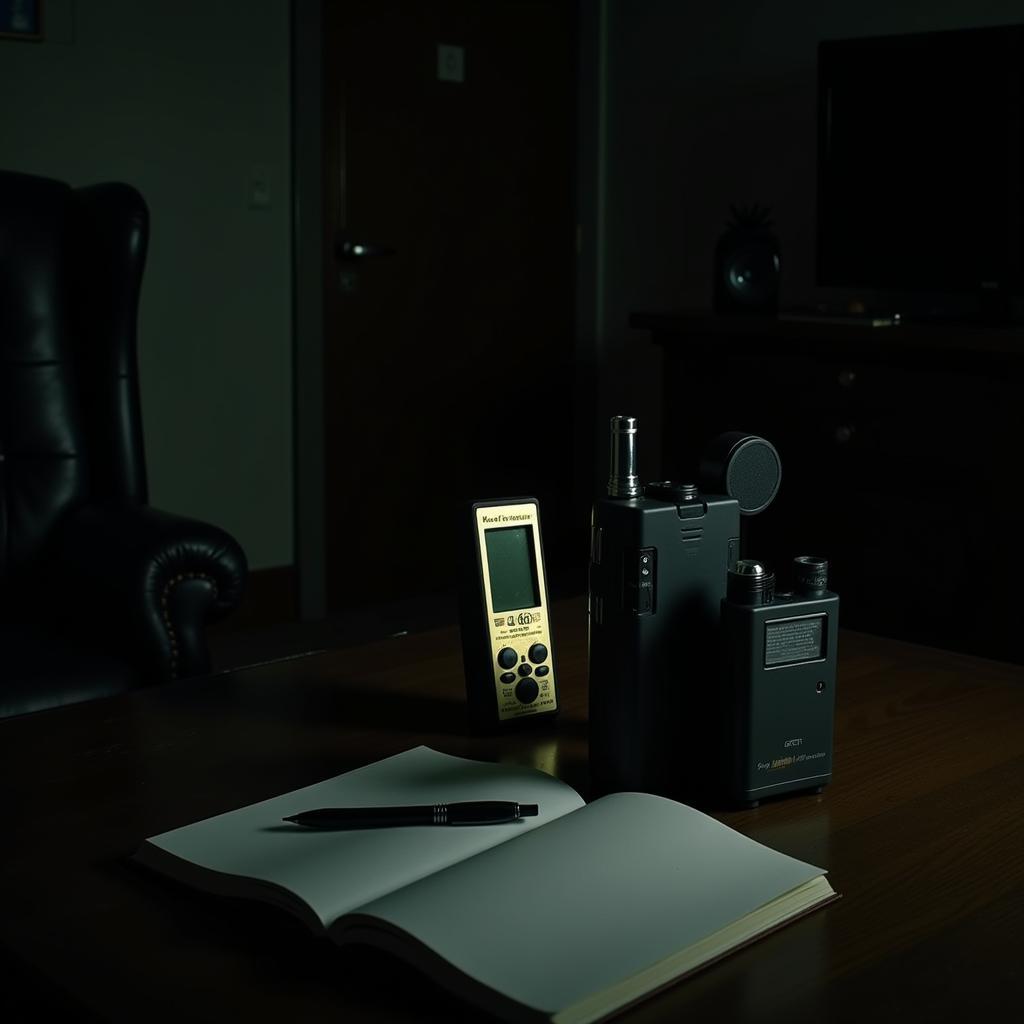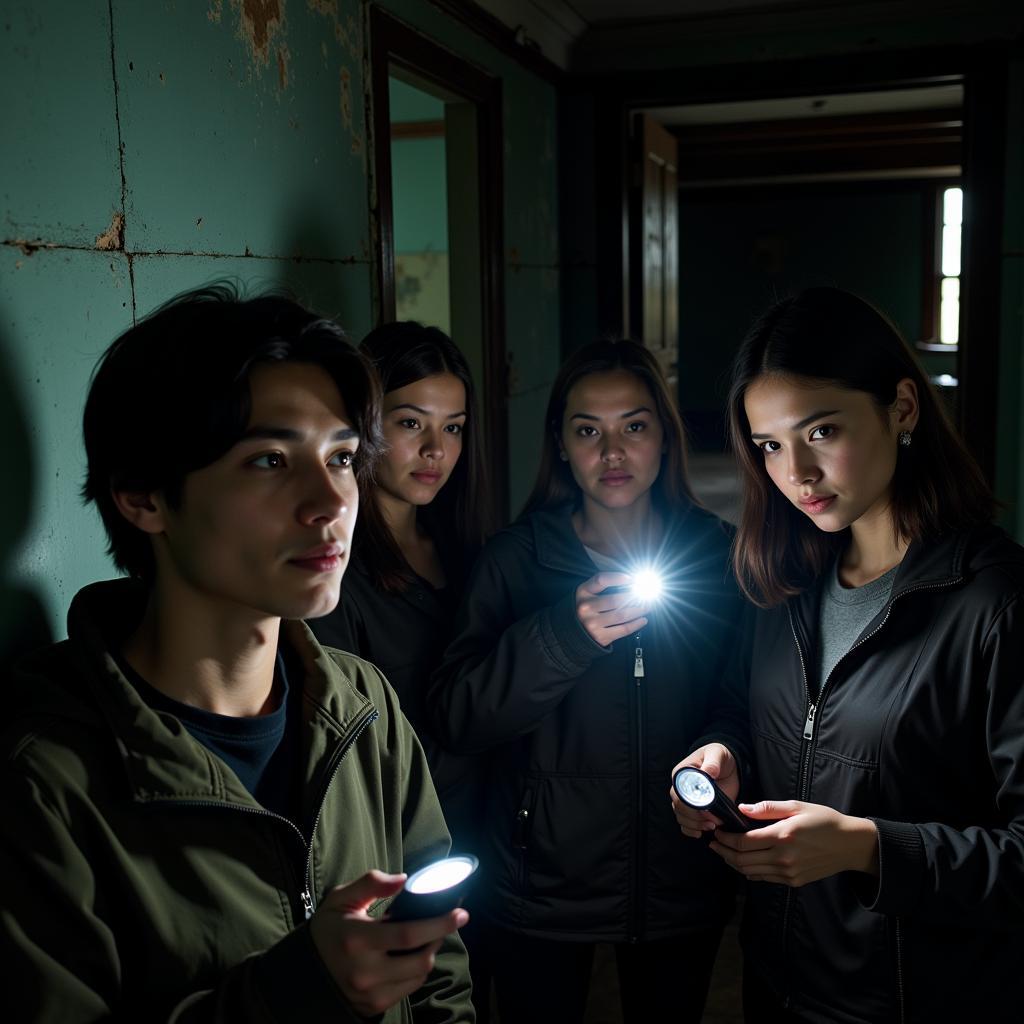A research question sits at the heart of any successful paranormal investigation, acting as a compass guiding you through the labyrinth of the unexplained. It’s the starting point for delving into the mysteries of unexplained phenomena, from ghostly apparitions to claims of psychic abilities.
 Paranormal Research Tools
Paranormal Research Tools
The Anatomy of a Strong Paranormal Research Question
Formulating a good research question is more than just asking “Are ghosts real?”. It requires careful thought, a healthy dose of skepticism, and a genuine desire to understand the nature of the unexplained. Here are a few key characteristics:
- Specific and Focused: Avoid broad inquiries like “What is the paranormal?”. Instead, opt for precise questions such as “Is there a correlation between reported ghost sightings and electromagnetic fluctuations in a specific location?”
- Measurable and Testable: Your research question should allow for the collection and analysis of data. For example, instead of asking “Do spirits communicate with the living?”, you might ask, “Can Electronic Voice Phenomena (EVP) be recorded at locations with a history of alleged hauntings?”
- Objective and Unbiased: Your personal beliefs should not influence the phrasing of your question. Aim for neutrality, like “What environmental factors might contribute to the perception of cold spots in allegedly haunted locations?”
- Relevant to the Field: Ground your research question in existing paranormal literature or established theories. For instance, you could investigate “Do the characteristics of apparitions align with different cultural beliefs about the afterlife?”
 Paranormal Investigation Team
Paranormal Investigation Team
Examples of Research Questions in Paranormal Investigation
To further illustrate, let’s explore some examples of research questions across different areas of Paranormal Research:
- Ghost Hunting: “Do temperature variations correlate with reported ghost sightings in historic cemeteries?”
- Cryptozoology: “Is there photographic evidence to support the existence of the Thunderbird in specific regions of North America?”
- Extra-Sensory Perception (ESP): “Can individuals trained in meditation demonstrate statistically significant precognitive abilities under controlled laboratory conditions?”
- Ufology: “Are there patterns in reported UFO sightings that suggest a connection to specific meteorological phenomena?”
The Importance of Research Questions in Paranormal Investigation
A well-crafted research question provides a solid foundation for your paranormal investigation. It helps you:
- Define Your Scope: It sets boundaries for your research, preventing you from getting lost in the vastness of the paranormal.
- Guide Your Methodology: The nature of your question will dictate the methods you use to gather data, whether it’s conducting interviews, taking EMF readings, or analyzing historical records.
- Analyze Your Findings: Your research question serves as a reference point for interpreting the data you collect and drawing meaningful conclusions.
- Contribute to the Field: By framing your investigation around a strong research question, you contribute to a more systematic and evidence-based approach to understanding the paranormal.
Beyond the Inquiry: Seeking Answers in the Unexplained
While a research question is a crucial first step, remember that paranormal investigation is an ongoing journey of exploration. Be prepared to adapt your approach, embrace new perspectives, and consider alternative explanations as you delve deeper into the enigmatic world of the paranormal.
For further examples of research questions in specific fields, consider exploring the following:
- Examples of Social Work Research Questions
- Examples of Phenomenology Research Questions
- Examples of Psychology Research Questions
- Examples of Ethnographic Research Questions
- Research Questions in Psychology Examples
By formulating strong research questions and approaching the paranormal with a blend of curiosity and critical thinking, we can continue to shed light on the mysteries that lie beyond the realm of the ordinary.